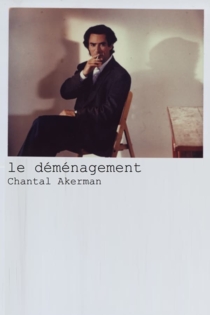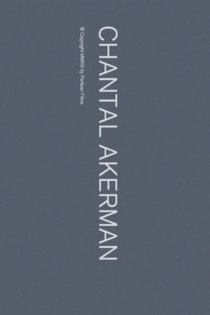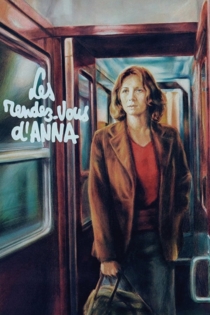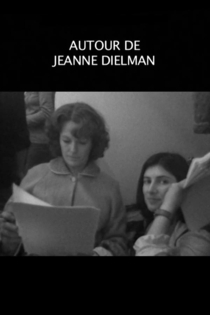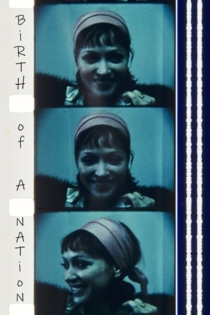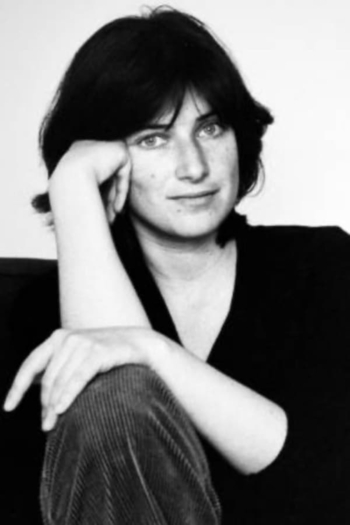
Chantal Akerman
1950 - 2015Despite being categorised as such by others, Akerman frequently distanced herself from the feminist label, explaining, "when people say there is a feminist film language, it is like saying there is only one way for women to express themselves". Instead, Akerman acknowledged that her cinematic approach took inspiration from the writings of Gilles Deleuze and Felix Guattari, as well as from filmmakers Michael Snow and Jean-Luc Godard.
Many directors have cited Akerman's directorial style as an influence on their work. Kelly Reichardt, Gus Van Sant, and Sofia Coppola have noted their exploration of filming in real time as a tribute to Akerman.
Femmes d'Anvers en Novembre
Chantal Akerman
Femmes d’Anvers en novembre is a dual projection piece rich in atmosphere and charm, filled with references to early French and American film noir – a deliberate homage, shot in close-up and medium close-up, to the smoking woman. The focus on the everyday activities of women (the core trope of Akerman’s masterpiece Jeanne Dielman) is a recurring theme in much of her work; Femmes d'Anvers signals a return to this motif. In it, Akerman tackles the thorny question of a person’s fundamental freedom to choose what to do with his or her body.
Women from Antwerp in November
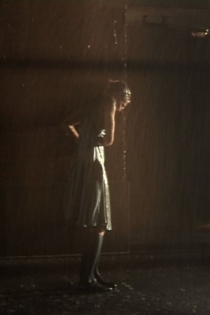
Portrait d'une jeune fille de la fin des années 60 à Bruxelles
Chantal Akerman
Circé Lethem, Julien Rassam
The main character, Michele, spends the hour discussing her views of life with some old and new friends, and tries to understand her own feelings about her place in the world and her sexuality, while a camera follows along at close range.
Portrait of a Young Girl at the End of the 60s in Brussels
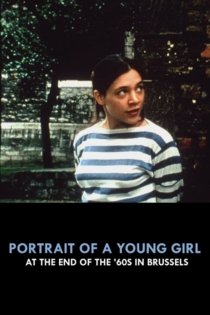
Jeanne Dielman, 23, Quai du Commerce 1080 Bruxelles
Chantal Akerman
Delphine Seyrig, Jan Decorte
A lonely widowed housewife does her daily chores and takes care of her apartment where she lives with her teenage son, and turns the occasional trick to make ends meet. Slowly, her ritualized daily routines begin to fall apart.
Jeanne Dielman, 23, quai du Commerce, 1080 Bruxelles
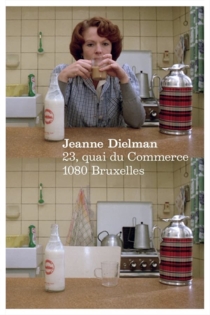
À l'est avec Sonia Wieder-Atherton
Chantal Akerman
Sonia Wieder-Atherton
Presented in 2 parts, this 83 minute piece documents Wieder-Atherton's idea to do a set of pieces from across central and eastern Europe, including Russia. Some weren't originally written for cello, but she had them transcribed. Some were songs for voices, which goes with Wieder-Atherton saying in an earlier film she made with Chantal Akerman that she aspires to play the cello in a way that it carries the specificity of emotion of the human voice. She explains at the beginning of both parts how she feels each country in the region has it's own personality expressed in its music, coming from its individual history and culture, but that each land in the area is also 'impregnated' as she puts it, by the others, so there are certain elements that run throughout.
East with Sonia Wieder-Atherton
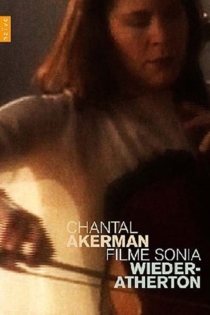
News from Home
Chantal Akerman
Chantal Akerman
Belgian filmmaker Chantal Akerman lives in New York. Filmed images of the City accompany texts of Akerman's loving mother back home in Brussels. The City comes more and more to the front while the words of the mother, read by Akerman herself, gradually fade away.
News from Home

Delphine and Carole
Callisto McNulty
Delphine Seyrig, Carole Roussopoulos
In the 70s, actress Delphine Seyrig and director Carole Roussopoulos, both militant feminists, were the pioneers of video activism in France. They documented the demonstrations of French feminists and used the new technologies to counter the poor representation of women in the public media.
Delphine and Carole
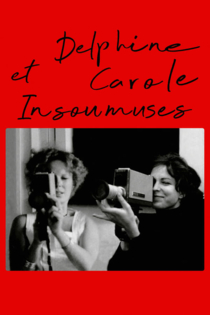
D'Est
Chantal Akerman
Natalia Chakhovskaia
Chantal Akerman has toured Eastern Europe through Russia, Poland, Ukraine filming everything that moved her : faces, streets, cars, buses, stations, landscapes, interiors, queues, doors, windows, meals. Women and men, young and old passing or stopping, seated or standing. Days and nights, rain, snow and wind, winter and spring.
From the East
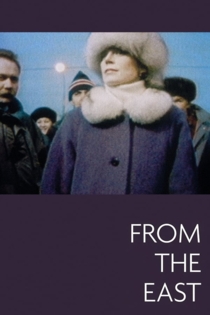
I Don’t Belong Anywhere : Le Cinéma de Chantal Akerman
Marianne Lambert
Chantal Akerman, Gus Van Sant
I Don’t Belong Anywhere - Le Cinéma de Chantal Akerman, explores some of the Belgian filmmaker’s 40 plus films. From Brussels to Tel-Aviv, from Paris to New-York, this documentary charts the sites of her peregrinations. An experimental filmmaker, a nomad, Chantal Akerman shares her cinematic trajectory, one that has never ceased to interrogate the the meaning of her existence. Thanks in great part to the interventions of her editor, Claire Atherton, she delineates the origins of her film language and her aesthetic stance.
I Don't Belong Anywhere: The Cinema of Chantal Akerman
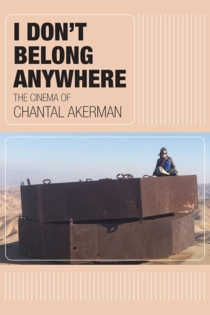
One Day Pina Asked...
Chantal Akerman
Pina Bausch, Chantal Akerman
Chantal Akerman followed famous Choreographer Pina Bausch and her company of dancers, The Tanzteater Wuppertal, for five weeks while they were on tour in Germany, Italy and France. Her objective was to capture Pina Bausch's unparalleled art not only on stage by behind the scenes.
One Day Pina Asked...
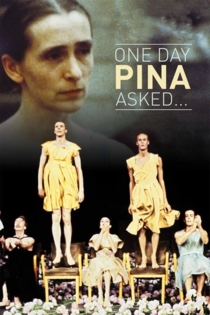
Le Déménagement
Chantal Akerman
Sami Frey
"A man stands amid unpacked boxes in his new home, delivering an extended monologue on indecision and dislocation. This rarely seen, overlooked gem created by Akerman for television explores the quotidian crises and profound feelings of alienation that run through her work." - BAM
Moving In
